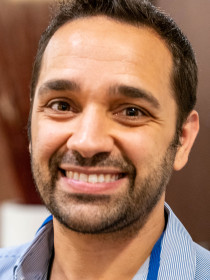
Daniel Douglas
Connect with Daniel
About Daniel
Douglas' research focuses on student access and success in higher education, specifically at community colleges. His published work discusses alternatives to college remedial placement, the role of mathematics in post-secondary education, and college and career pathways in STEM. Douglas has conducted evaluations for the US Department of Education, US Department of Labor, and National Science Foundation. He has also partnered with the non-profit advocacy group Complete College America. In Connecticut, he has worked with the Hartford Foundation for Public Giving and ConnectiKids.
Contributions
In the News
Publications
Examines seven-year outcomes of an alternative to remedial mathematics placement. Findings show that students who took a college-level course with support instead of pre-requisite remediation were more likely to complete college, and earned more money after college.
Addresses the lack of research on U.S. undergraduates' mathematics course-taking patterns and achievement disparities. Findings reveal that math courses are more likely to be failed than any other course in the college curriculum, and that female students in math-intensive majors take more math courses and do better in those classes.
Investigates whether working for pay while enrolled in college helps or harms students. Findings show that students who work and study concurrently earn more after college than those who do not work while enrolled.